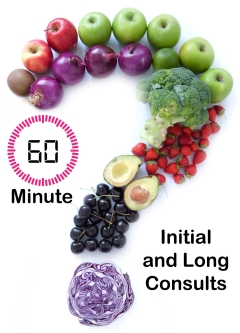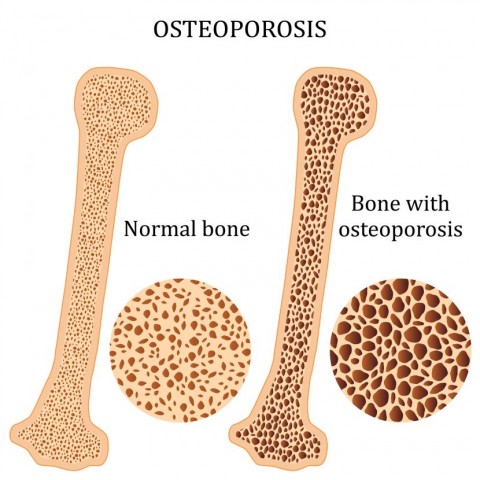DrCarney.com Blog
Fruits and Vegetables Slash Osteoporosis Risk
Around the world, people who are unaware of dairy's risks are still consuming milk and other dairy products in a mistaken attempt to meet the calcium needs of their body. Calcium is abundant in beans and leafy green plant foods, which nourish without the harm that cow's milk products inflict on the human body. Calcium is required for the building and maintenance of strong bones. Surprisingly, nations with the greatest milk consumption rates have the highest incidence of osteoporosis. Europe and America consume the largest amounts of milk globally, but the prevalence of osteoporosis in these 2 regions is among the highest in the world.
According to the International Osteoporosis Foundation, more than 200 million people in the world are currently suffering from osteoporosis. Osteoporosis is a disease characterized by low bone mass and structural deterioration of the bone tissue, leading to fragile bones and increased susceptibility to fractures. Every 3 seconds, 1 person suffers from an osteoporotic fracture, and more than 8.9 million people develop this type of fracture every year. Women have a higher risk of getting osteoporosis than men. About 1 in 3 women above the age of 50 will experience osteoporotic fracture at some point in their lifetime compared to 1 in 5 men within the same age bracket. Approximately 51% of the total number of osteoporotic fractures that occur worldwide takes place in Europe and America. Data from numerous studies have shown that diets play a key role in both the development and prevention of osteoporosis. Animal protein in the diet, such as dairy, eggs, and meat, creates acidity that fosters osteoporosis and fracture.
Chinese researchers studied the effect of high intake of fruits and vegetables on bone health in middle-aged and elderly men and women. This study involved 1006 men and 2083 women aged 40-75 years. The researchers observed that subjects on diets rich in fruits and vegetables experienced an increase in bone mass, decrease in bone loss, and reduction in fracture risk compared to their counterparts who ate little amounts of fruits and vegetables. The results of another study published in the International Osteoporosis Journal support the findings of this Chinese study.
Fruits and vegetables are a major source of dietary calcium which are less risky than animal-derived sources such as milk and other dairy products. While milk contains high acid load that promotes the leaching calcium from bone, urinary excretion of calcium, and subsequently reduction in bone density, fruits and vegetables have the opposite effect on bones. Fruits and vegetables are better at alkalizing the body's pH. They contain calcium, phytochemicals, vitamin C, and K that are involved in the synthesis of new bone and collagen tissues and the strengthening of existing bone mass. These actions of fruits and vegetables help to increase bone density, reduce bone fragility, and prevent osteoporosis. Therefore, habitual consumption of generous portions of fruits and vegetables can help to decrease an individual's vulnerability to osteoporosis. Save your bones. Ditch the dairy!
Additional Information:
(1) The International Osteoporosis Foundation: Facts and Statistics
(2) Milk is a Poor Preventer of Osteoporosis
Scroll Down Page to Leave Comments

Need Support?
Have we got a group for you! Join, or create, a Starch-Smart® Support Group and connect with like-minded community members today.
One Hour Phone Consult with Dr. Carney

Telephone Food Coaching Sessions with Linda Carney MD
Due to demand for nutritional advice, Dr. Carney's offers Starch-Smart® System "Dietary Care Extraordinaire" Food Coaching telephone sessions. The first sessions is always one hour. Subsequent sessions can be thirty minutes or one hour:
Click Here For 60 Minute Food Coaching Session
Please Note: Food Coaching sessions are not medical appointments and are not intended to replace your own physician. No tests will be ordered and no prescriptions will be provided.
When you subscribe to the blog, we will send you an e-mail when there are new updates on the site so you wouldn't miss them.




